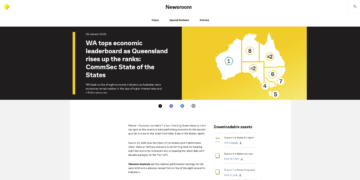Thailand Proposes Raising VAT to 15%: A Bold Move or Economic Burden?
Thailand’s Finance Minister and Deputy Prime Minister Pichai Chunhavajira has proposed a major overhaul of the country’s tax system, including a plan to raise the Value-Added Tax (VAT) from the current 7% to 15%. The proposal, aimed at increasing government revenue and aligning Thailand’s tax structure with international standards, has sparked intense debate across political, business, and social sectors.
Background: Thailand’s Current Tax System vs Global Standards
Thailand’s VAT has been fixed at 7% since 1992, making it one of the lowest in the region. According to the Ministry of Finance, many countries have VAT rates between 15% and 25%:
- UK – 20%
- Germany – 19%
- China – up to 13%
- Vietnam, Cambodia, and Laos – 10%
- Singapore – recently raised to 9%
Thailand’s VAT rate is higher than Myanmar (5%) but remains one of the lowest in Asia. The government argues that this low rate limits Thailand’s ability to generate revenue for infrastructure and social programmes, especially as public expenditure rises.
Why Raise VAT Now?
Finance Minister Pichai explained that the proposed VAT increase is intended to:
✅ Increase government revenue to support infrastructure development and social welfare
✅ Reduce income inequality by channelling more resources toward low-income households
✅ Stabilise the national budget and strengthen Thailand’s long-term economic outlook
“Adjusting the VAT rate will generate more income from those who spend more while allowing the government to increase support for the poor.” — Pichai Chunhavajira
Supporters’ Perspective: Why VAT Reform Is Necessary
✅ Widening the Tax Base
Sanan Angubolkul, Chairman of the Thai Chamber of Commerce, highlighted that Thailand’s tax system relies too heavily on a small group of taxpayers, with many individuals and businesses not contributing to the tax system. Raising VAT would expand the tax base and improve fairness.
“Thailand needs to increase tax collection efficiency and bring more individuals and businesses into the tax system.”
✅ Stronger Fiscal Health
Raising VAT to 15% would generate significant additional revenue, allowing the government to:
- Invest in infrastructure
- Strengthen healthcare and education systems
- Provide more direct support to low-income families
Pichai argued that wealthier citizens who spend more would shoulder a greater share of the tax burden, helping to reduce the gap between rich and poor.
Opposition: Economic Pressure and Rising Costs
❌ Burden on Middle and Low-Income Households
Sirikanya Tansakun, Deputy Leader of the opposition Move Forward Party, criticised the proposal, arguing that a 15% VAT would disproportionately hurt low- and middle-income families.
“Instead of raising VAT, the government should focus on improving income tax collection and closing loopholes in corporate tax.”
❌ Inflation and Consumer Impact
Thanakorn Wangboonkongchana, a member of the ruling coalition, also voiced concerns that raising VAT would drive up the cost of goods and services, putting pressure on consumers and potentially slowing domestic consumption.
“Increasing VAT will push up prices and reduce spending power, which could hurt economic recovery.”
❌ Business Sector Concerns
Tawee Piyapatana, Vice Chairman of the Federation of Thai Industries, warned that the proposal comes at a delicate time when the Thai economy is still recovering from the pandemic:
“Higher VAT could discourage spending and harm business confidence. The government should first focus on broadening the tax base before increasing rates.”

International Comparison: Is Thailand’s VAT Too Low?
Thailand’s current VAT rate of 7% is low compared to both regional and global standards:
| Country | VAT Rate (%) |
|---|---|
| Myanmar | 5% |
| Thailand (Current) | 7% |
| Vietnam | 10% |
| Cambodia | 10% |
| Indonesia | 12% (recently increased) |
| Singapore | 9% (recently increased) |
| UK | 20% |
| Germany | 19% |
| France | 20% |
Thailand’s legal VAT rate is officially set at 10% under the current law, but it has been held at 7% since the 1997 Asian financial crisis as a temporary measure to stimulate the economy. The government now argues that it’s time to normalise the rate in line with international practices.
Potential Outcomes and Challenges
🔎 Economic Growth vs Inflation Risk
Raising VAT could generate significant additional revenue — but at the cost of higher inflation and reduced consumer spending.
🔎 Targeted Relief Measures Needed
To offset the burden on low-income households, the government may need to introduce:
- VAT exemptions on essential goods
- Targeted subsidies for vulnerable groups
- Lower VAT rates for small businesses
🔎 Political Backlash and Public Opinion
The VAT increase is likely to face political resistance, particularly from opposition parties and consumer groups. Public protests and business pressure could force the government to scale back or delay the plan.
What’s Next?
Finance Minister Pichai has confirmed that the government will:
- Conduct further studies on the economic and social impact of the VAT increase
- Seek input from business leaders, economists, and the public
- Develop a phased implementation plan to avoid sudden market disruption
“We need to find a balance — increasing government revenue without overburdening the public.”
Conclusion: A High-Stakes Fiscal Gamble
| Factor | Positive Impact | Potential Risk |
|---|---|---|
| Higher VAT Revenue | Increased funding for infrastructure and social programmes | Reduced consumer spending and inflationary pressure |
| Wider Tax Base | Fairer tax contribution from high-income earners | Greater financial pressure on low- and middle-income households |
| International Competitiveness | Aligns Thailand with global tax standards | Could reduce Thailand’s cost-of-living advantage for tourists and expats |
| Economic Growth | Stronger fiscal position for long-term growth | Short-term slowdown in consumption and business activity |
Final Thoughts
Thailand’s proposed VAT increase represents a bold effort to strengthen the country’s fiscal health and social safety net. However, the government faces the delicate task of balancing higher revenue with protecting household spending power.
If implemented effectively — with targeted exemptions and relief measures — the reform could provide Thailand with the financial resources needed to modernise infrastructure, improve healthcare and education, and drive long-term economic growth.
However, if mismanaged, the VAT hike could weaken consumer confidence, stall economic recovery, and deepen income inequality. The coming months will be crucial as the government navigates this complex and politically sensitive fiscal reform.































